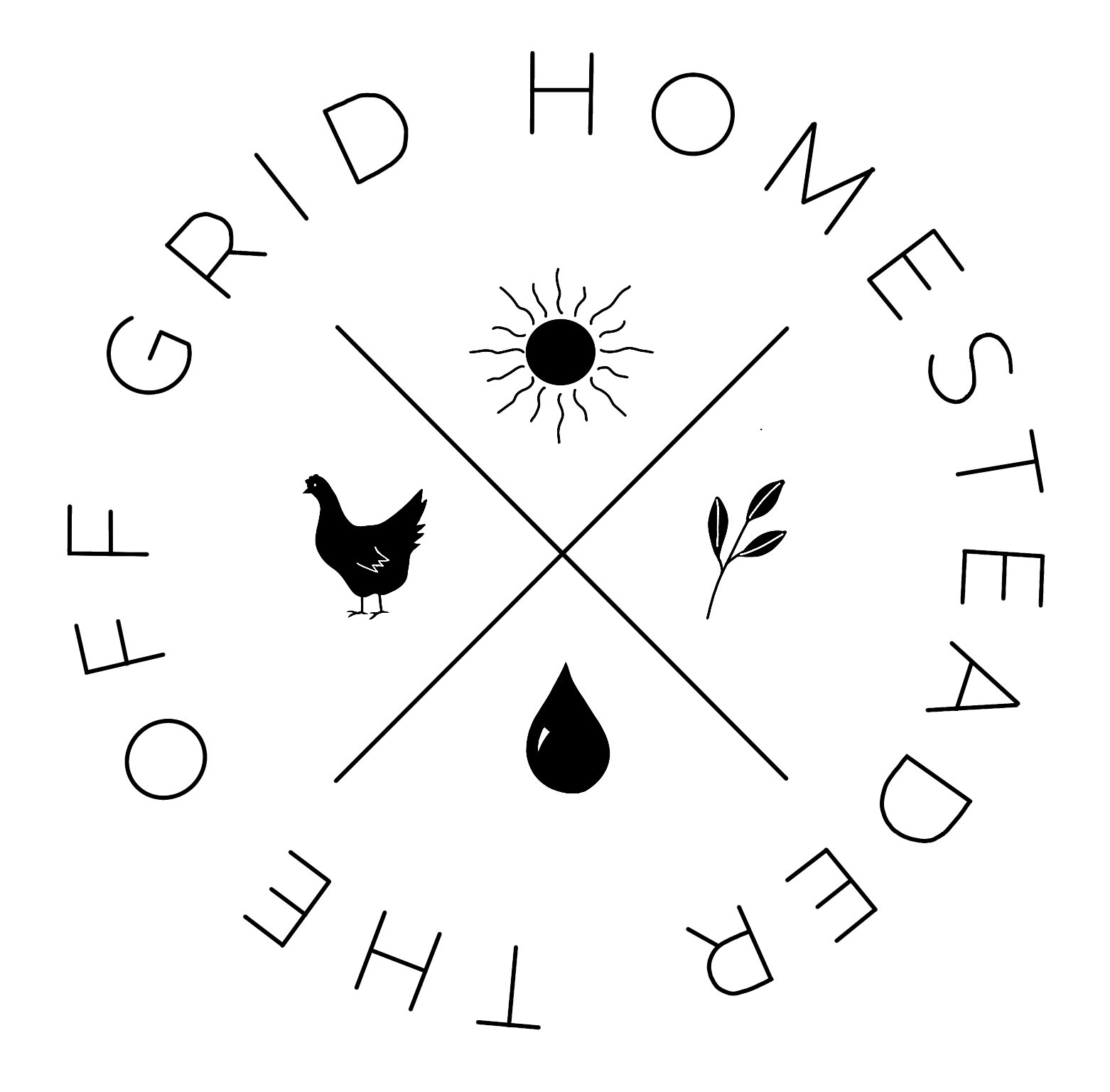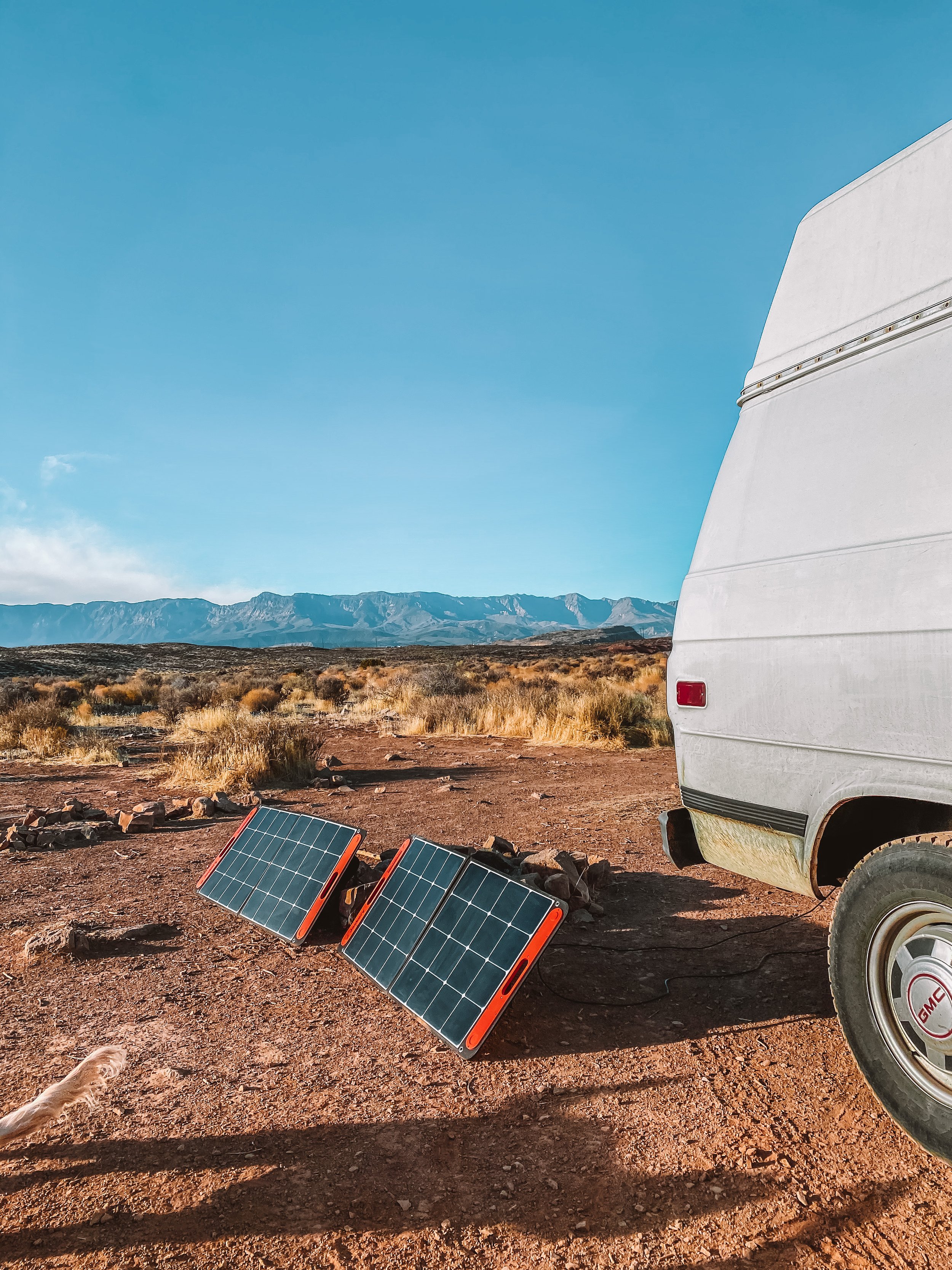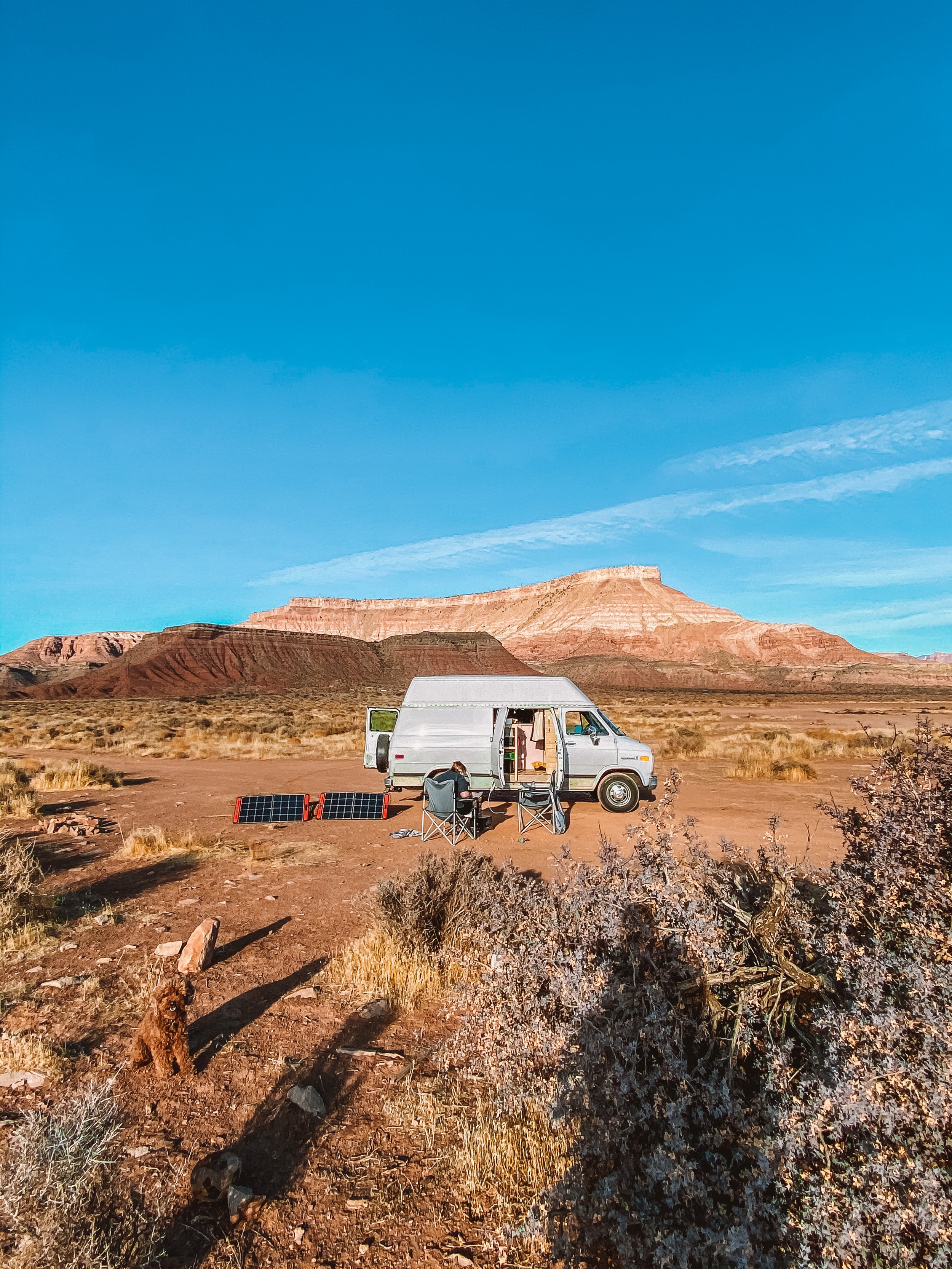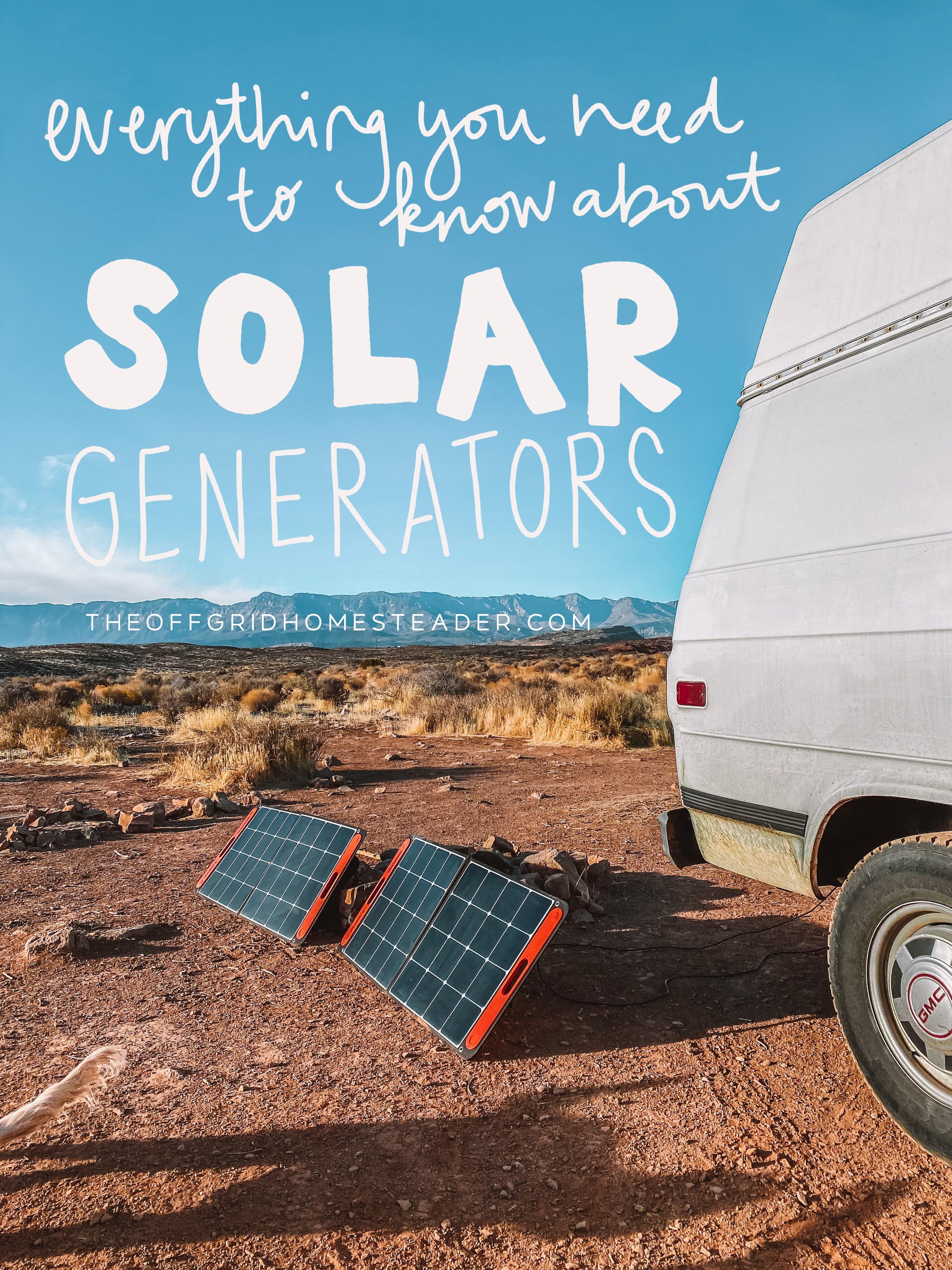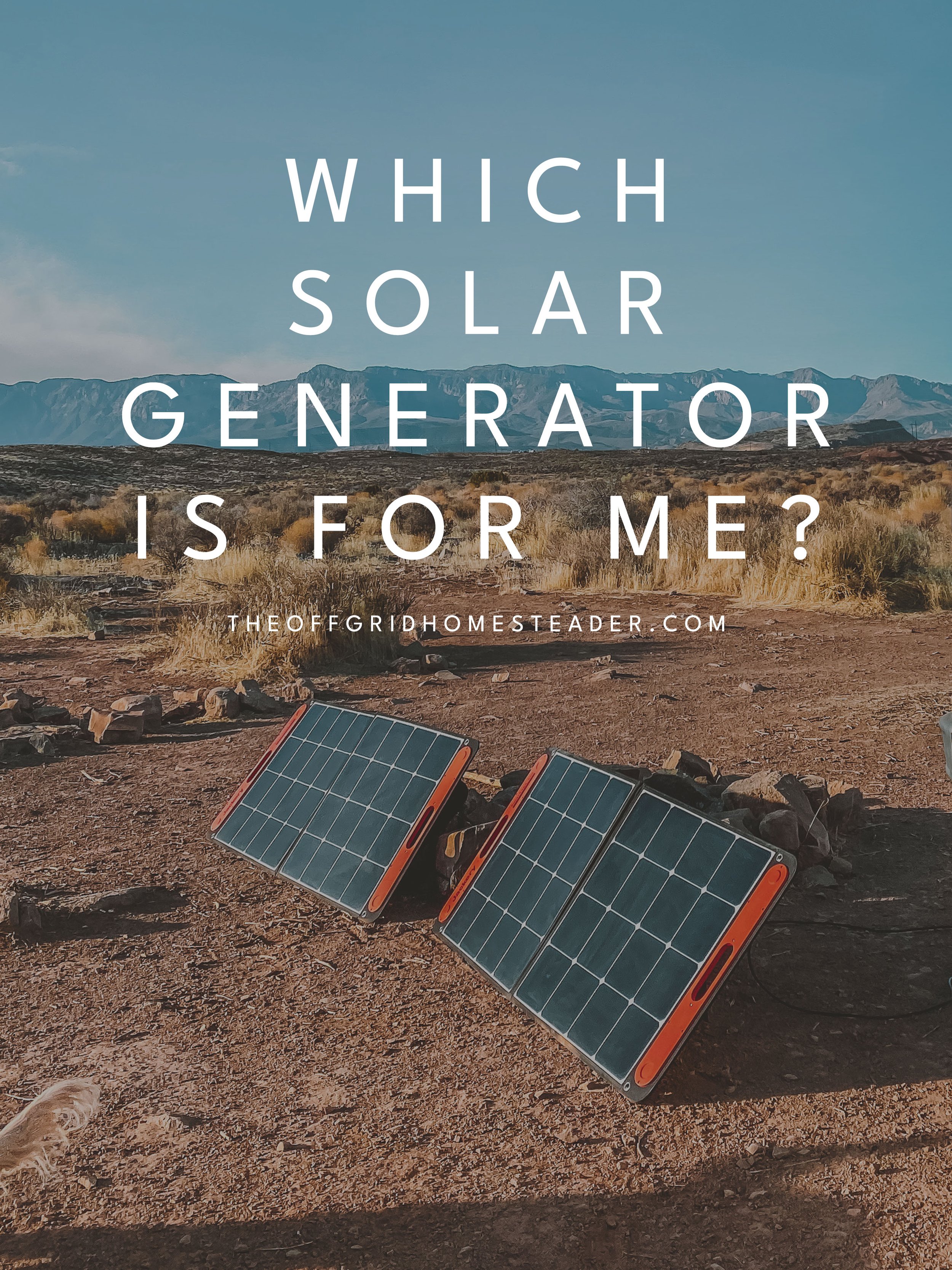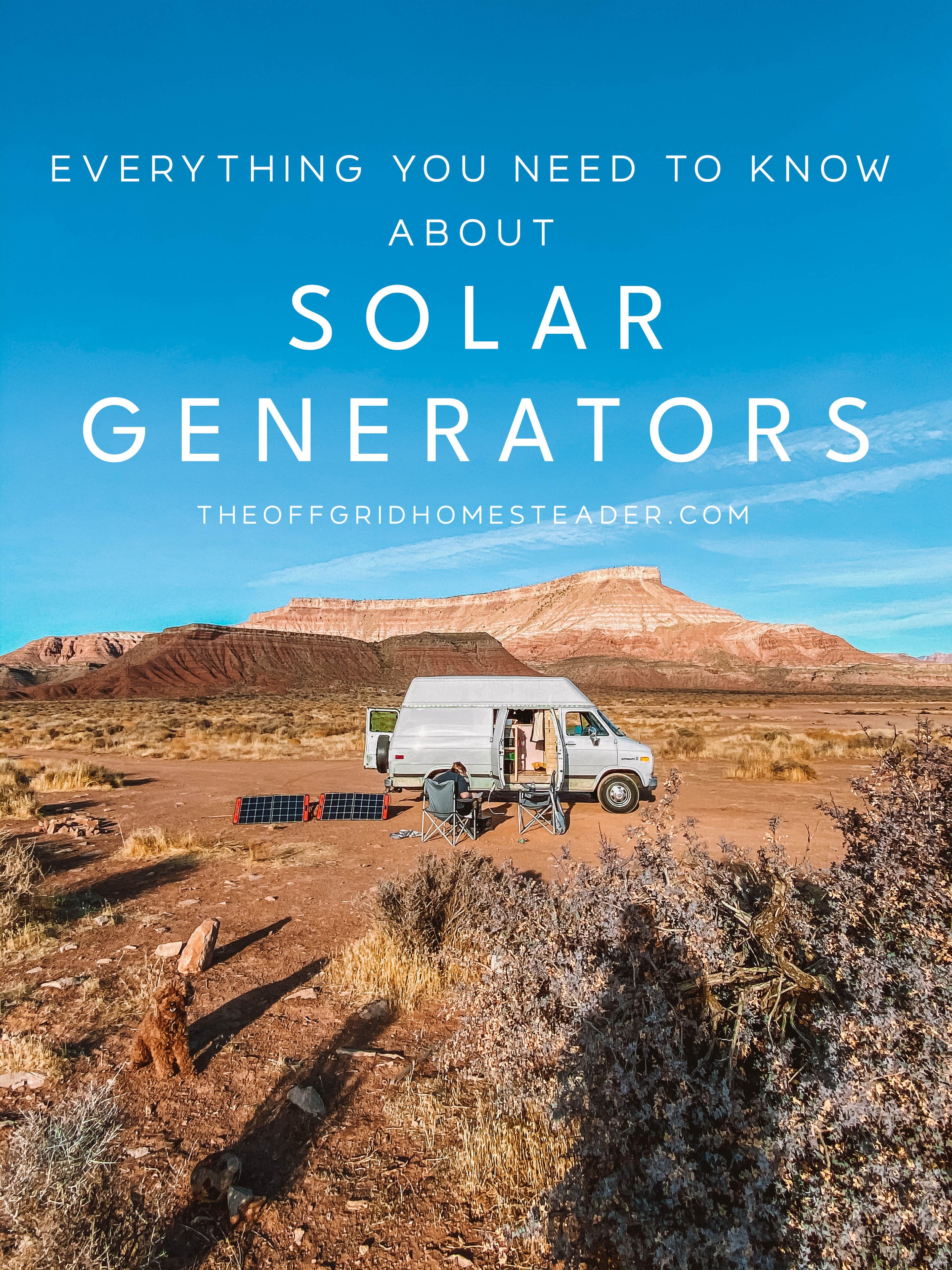Everything You Need to Know About Solar Generators
In an era of increasing concern about reliable power sources, solar generators have emerged as a popular solution. You’ve likely seen your favorite content creator doing an ad for Jackery, Eco-Flow, or Bluetti and have wondered if a solar generator is right for you. We’ve been using our Jackery 1000 for 3 years and there have been ups and there certainly have downs. In this comprehensive guide, we'll delve into the world of solar generators, exploring their advantages and disadvantages, as well as the scenarios where they prove to be invaluable.
Want to know how we are powering our off grid home now? Watch this.
The Pros of Solar Generators
1. Energy Independence (sort of…)
Solar generators provide a degree of energy independence and this is likely the main reason you are considering buying one. By generating your electricity, you become less reliant on traditional power grids, reducing the impact of grid failures, blackouts, and rising energy costs. However, most solar generators don't have enough of a bank to power a traditional house. More on that later…
2. Quiet and Low Maintenance
Solar generators are virtually silent, making them ideal for both residential and outdoor use. They do occasionally make noise when a lot of power is being used, but it’s for a short time and sounds as loud as a fan. Additionally, they require little to no maintenance compared to traditional gas generators, which often need fuel, oil changes, and periodic repairs.
3. No DIY Aspect
If you were to set up a solar system, you’d have to purchase and install many different pieces. You’d need a solar charge controller, an inverter, and traditionally wired plugs. Solar generators contain everything you need to store and harness power. There is mostly no installation needed- there are standard outlets right on the solar generator. You just plug in what you want to use and that’s that.
4. Portability
Many solar generators are designed to be portable, allowing you to take them camping, on road trips, or to remote locations where access to electrical outlets is limited. This mobility provides a versatile power source wherever you go. We used our Jackery 1000 to power our campervan for a month log trip out west.
5. No Gas Needed
A regular generator takes some sort of fuel to run which means needing to stock up on gasoline or propane. A solar generator doesn’t require any fuel to operate. This means if you are out of fuel and the power goes out, as long as your solar generator is charged, you will have power.
6. Easy to charge
If you are wanting a solar generator as a back up power source, you likely already have electricity from your city. In this case, all you have to do charge your solar generator is plug the provided cord into the wall. Once it is fully charged you unplug it and it will stay mostly charged for a while. (You may want to check every now and then to make sure it’s still at 100%.) If you don’t already have electricity and are looking into solar generators as your main power source, keep reading.
7. Allowed indoors
As you hopefully know, fuel operated generators are NEVER allowed to go indoors. The exhaust can kill you in minutes. A solar generator has no exhaust which means you can bring it inside. In fact, the generator itself should not be left outside.
The Cons of Solar Generators
1. High Initial Cost
The upfront cost of purchasing a solar generator is high. There is no other way to slice it. A more affordable option would be to set up a simple solar system the DIY route. However, not everyone wants or needs to do that. I’m not saying that high initial cost isn’t worth it, just something to consider for yourself. The more power you need, the more it’s going to cost you.
2. Solar Panels Needed
If you don’t have electricity already, you will have to purchase solar panels to charge the generator. This means an added cost. Many companies that sell solar generators will also sell solar panels that are easily connected to each other and to the generator. These often cost exponentially more than the traditional solar panels you can buy elsewhere. You are paying for the ease of use which does have value to some. Unless you swap out the the plugs (like we did) you cannot use a traditional solar panel to power your solar generator. Their plugs are different which requires you to purchase their panels.
Another thing to consider is that the solar panels that these companies sell aren’t always waterproof meaning they cannot be out in the rain. This is okay if you are only setting up the panels here and there. In our off grid situation we needed our solar panels to constantly be out getting whatever sun they could. This meant we did NOT want to bring solar panels inside every time it rained. Check out this post to see how we wired 2 cheap solar panels to our solar generator in order to save some money and time.
Another consideration is that when you are charging the solar generator with their provided solar panels, the generator can’t be far away. This can be frustrating if you are trying to power your fridge or something else inside because you will need to take the entire unit outside to be near the panels since the cord isn’t very long.
3. Weather Dependency
Solar generators that are charged by solar panels depend on sunlight to function. Cloudy days, heavy rain, or extended periods of darkness can limit their effectiveness. This would make it hard for you to solely use the solar generator as your power source.
4. Slow to Charge
The amount of time it takes to charge your solar generator depends on what model you get. Our Jackery 1000, which is still on the market today, only charges at 200 watts per hour. This means the fastest it could charge at is 5 hours. But most of the time it’s much less because our 200 watt solar panels never actually brought in 200 watts and a standard outlet in a powered home only ever charged it at about 144 watts per hour. There are newer models that claim to charge in as little as 2 hours but a good rule of thumb is to add a little to whatever they claim.
5. Limited Power Output
Solar generators have limitations on power output, making them unsuitable for heavy-duty applications or large-scale energy needs. There are solar generators that are so small they will only charge your phone and maybe run a lamp. There are others that will allow you to run a fridge and a toaster. Assess your energy requirements carefully before choosing a solar generator.
6. Efficiency Lowers Over Time
Just like any battery, a solar generator will get less efficient over time. This is really not a huge problem but folks who will be using one over and over again as a main power source with lower the battery’s efficiency faster. If you are buying one just for emergencies, yours will likely last longer.
When Do You Need a Solar Generator?
1. Off-Grid Living
If you live in a remote area with limited access to the main power grid, a solar generator can provide a reliable source of electricity, allowing you to enjoy modern conveniences without the need for expensive grid extensions. Or maybe you are putting a cabin on your property but it’s in a location where electricity will not reach. A solar generator can give you simple electricity in situations like these.
When we first moved onto our land, we used our Jackery 1000 everyday. We used it in conjuction with a traditional generator as our sole power sources for a year before getting our Battleborn batteries. Our goal was always to have a solar system large enough to run our entire house, but in the beginning we had to use what we had and could afford.
If you want to read more about all generators check out this blog post for more information.
2. Emergency Preparedness
Solar generators are an excellent addition to your emergency preparedness kit. They can provide essential power during natural disasters & power outages, ensuring you can charge phones, run medical devices, and maintain communication. Even the smallest solar generator can charge a phone and run your internet. Since they don’t need fuel they make a great addition to your emergency preparedness kit.
3. Outdoor Adventures
For camping, hiking, and other outdoor activities, portable solar generators are a fantastic choice. since traditional generators are often not allowed at campgrounds. They allow you to power lights, cookers, and electronic devices while enjoying the tranquility of nature. There is no exhaust and basically no noise so you can set it right next to you and not be bothered. And your neighbors won’t be bothered either if you are in a campground.
What size solar generator should I get?
If you’ve made it this far and you’ve decided that a solar generator is for you, let’s figure out what size would be best for you.
Just looking to run your internet and charge a couple phones when a bad storm rolls through? A solar generator in the 300-500 Wh range will likely be fine for you.
Wanting to run your refrigerator and TV in the same circumstance? You’re going to want to go the biggest route possible. There are solar generators up to 3000Wh and that would get you through a power outage.
If you are looking to run a heater or air conditioner, you are going to want to go another route. There is no true solar generators that can run these things for any significant amount of time.
If you are going off grid and you think that a solar generator is the route you want to go, I would suggest you get the biggest size you can afford and adjust your power needs accordingly.
The truth is that is today’s world of modern luxuries, it would be hard for a solar generator to provide you with your full power needs. In my humble opinion, a solar generator is best used as supplemental electricity.
Luckily, technology is changing and moving forward every day. The ever evolving and growing solar power world means that power becomes more affordable and efficient. Even in the few years that we have had our Jackery 1000 we’ve seen solar generator prices go down, higher power options exist, and limitations like un-waterproof solar panels be fixed.
This Jackery 3000 pro + solar panels are listed here below and have come a long way from our Jackery.
What else should I consider?
When evaluating solar generators for your needs you want to know these basic things:
How much power does this unit provide?
How long does it take to fully charge the solar generator with solar panels? How long if plugged into the wall? Remember if a brand is advertising that it can take 3 hours to fully charge their generator with solar panels, then how many panels are they using to power it that quickly?
What are you wanting your generator for?
What will you do if you need power but the generator needs to be out charging with the solar panels?
Solar generators are a great addition for having power when you are outdoors and they are a great addition to an emergency preparedness kit. In our opinion, there are better and less expensive options for powering your off-grid home. However, if you have the money and the DIY route is overwhelming, solar generators could be a good option for you.
